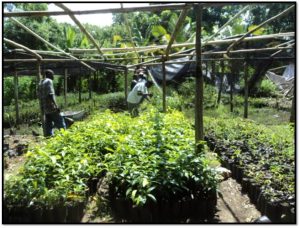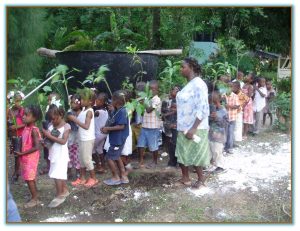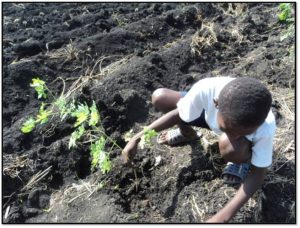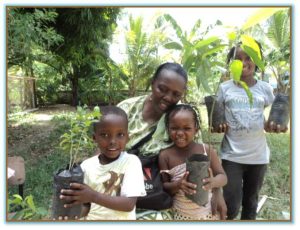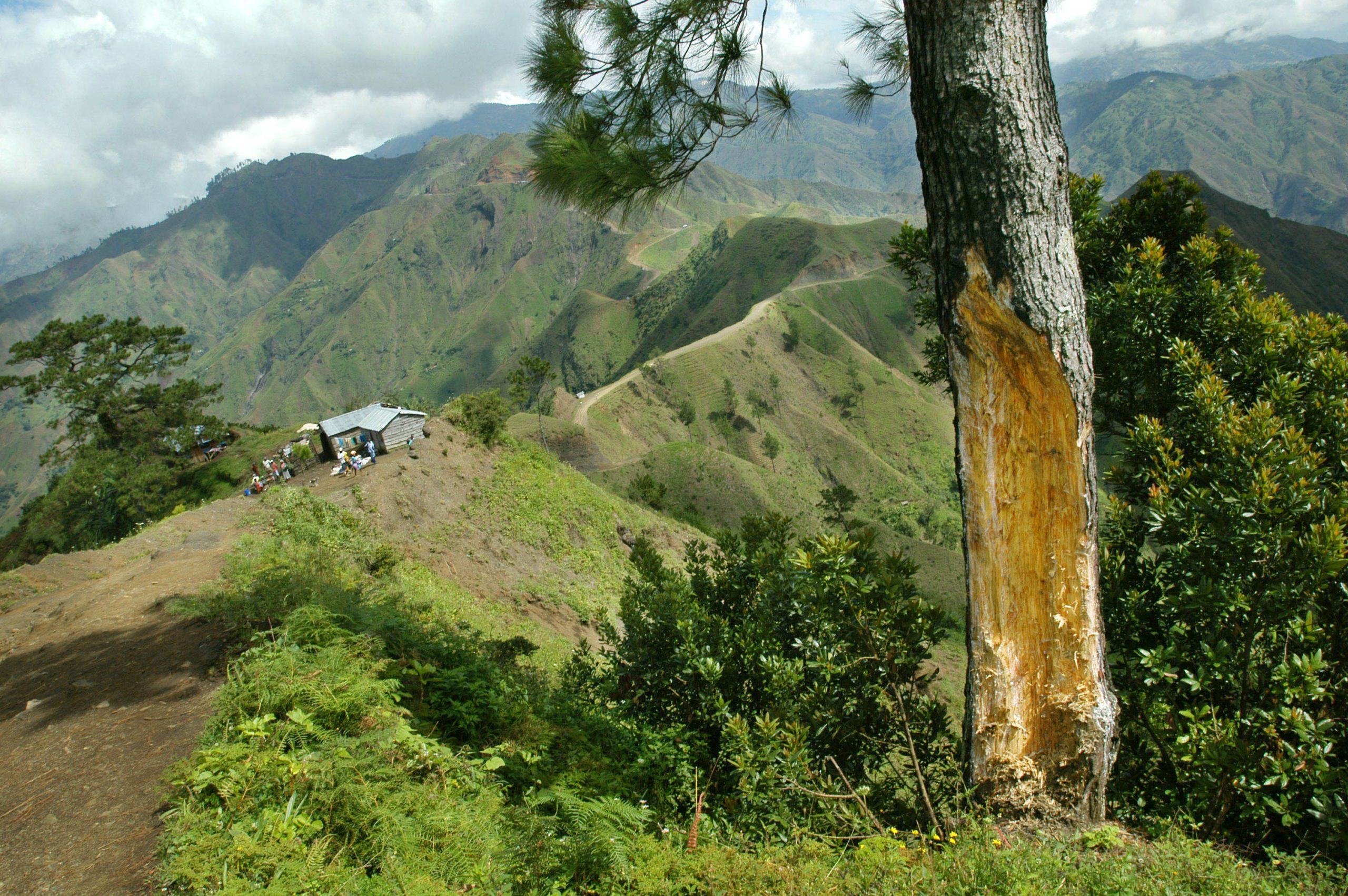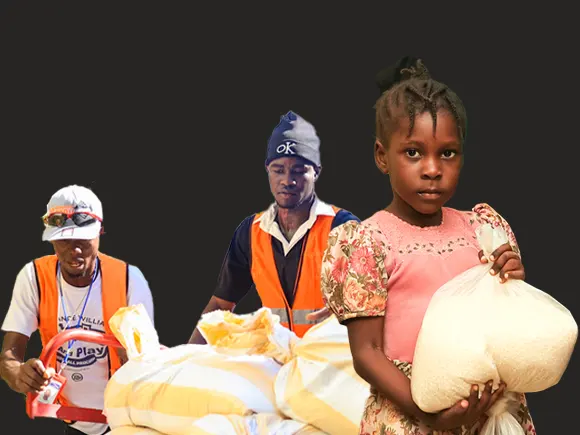Much has been said and written about Haiti’s deforestation problem. With good reason.
Unabated chopping down of trees to produce charcoal – many Haitians’ chief source of fuel – has turned a once lush, beautifully forested country into one of the most deforested countries in the world. This has caused a tremendous amount of issues; not the least of which is soil erosion.
In a country already struggling to produce enough food, soil erosion washes away topsoil – a critical component for farming. As a result, crops are harder to grow, the drought periods are significantly worsened, and entire communities are left vulnerable and without protection during the hurricane season. In addition to constantly having to rebuild after hurricanes, storms often devastate the country’s meager crops.
Enter Food For The Poor’s awesome, world-changing donors…
Thanks to initiatives like the Deuxieme Plaine Reforestation Project, thousands of fruit- and food-bearing trees are being planted in areas that desperately need not only trees, but also the provision of good sources of nutrition and income for their residents.
So far, this one project alone has produced over 102,000 seedlings. Mango, cashew nut, cherry, papaya trees and more are steadily growing, replenishing the soil and improving the overall health of communities.
Here’s the latest count of all the seedlings produced so far by this project:
| Trees | Amounts | |
| Cherry |
28,422 |
|
| Mangoes |
30,711 |
|
| Eucalyptus |
4,200 |
|
| Acacia |
2,780 |
|
| Custard apple |
4,122 |
|
| Soursop |
4,869 |
|
| Papaya |
6,722 |
|
| Jimpa |
5,989 |
|
| Cashew nut |
1,187 |
|
| Citrus |
3,422 |
|
| Swietenia Marogani |
2,723 |
|
| Oak |
6,920 |
|
| TOTAL |
102,067 |
Another nice thing about trees is something we may take for granted (but I assure you anyone who has been to Haiti in the month of August does not); the welcome relief of shade they provide.
COMMUNITY INVOLVEMENT
One of the great things about a project like this is the enthusiastic participation and cooperation generated between individuals and community organizations. This enthusiasm creates a sense of genuine community, ownership and accountability, which all help to ensure a project’s long-term success.
It has been great to witness people young and old coming together and getting personally invested in this program, while a local organization has taken the lead.
In this case, Food For The Poor is partnering with a local organization called GRAPEDP, who so far have organized a seed collection contest, gotten local children involved with some of the planting (along with some education about the importance of trees), and acquired a plot of land on which to grow an orchard of cherry, mango and moringa trees.
To date, approximately 90,000 tree seedlings have been transplanted in different areas such as Deuxieme Plaine, Bazile Haut, Olivier, Gressier, and Corail. Three nurseries have been constructed to grow the seedlings and a water tower/irrigation system is being put into place to ensure the seedlings and plants have enough water to flourish. All the necessary fertilizer and tools (wheelbarrows, watering cans, etc.) have been distributed to the residents to help till the land.
While some of the fruit trees have already produced a harvest (providing nutrition and income for the poor in some communities), this project promises to help replenish and rejuvenate many more communities for generations to come!


